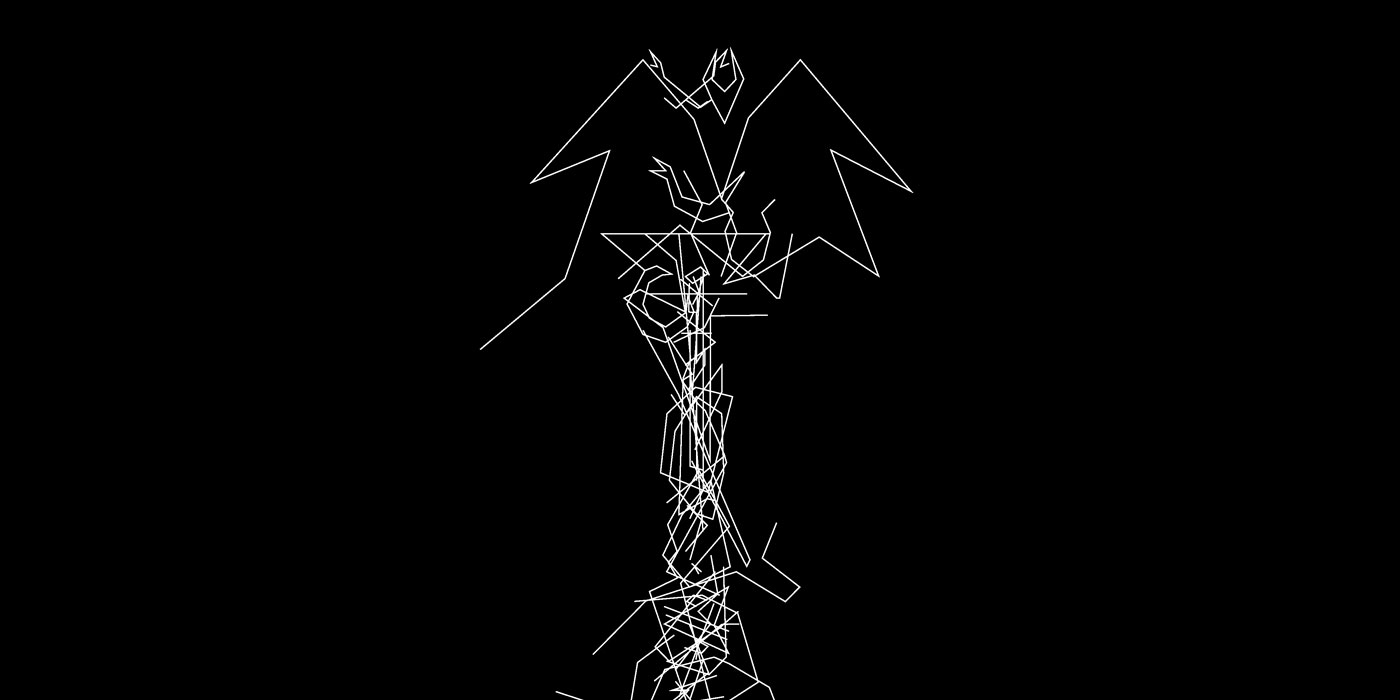What world is this? Where are we? What was that sound? There’s a grating noise, pulverized between some primitive rock decoration and an industrial vice. It’s being melted down now, tossed against the grating of some piece of machinery…that’s hooked up to a soundboard? That soundboard is filling some empty warehouse with some kind of brisk electronica? Down the assembly line, some metal head screeched. Where the hell are we?
Garden of Delete is an oddity, the scatterbrained ruler of some technocratic dystopia that’s purged itself of life. There’s a feeling of emptiness where the chiptune coda to “Ezra” drifts over Oneohtrix Point Never’s softer, synthesized guitar that clips into the rest of the song. There’s movement and sound in that coda that’s blaring over some speaker, but the audience is sparse and the music just as hollow.
It feels like a weird departure pulling out of 2013’s R+7, Lopatin’s previous album where voices and echoes danced around. Synthesizers chirped like birds in spring, sputtered into machine guns and bouncing bits of percussion. Even in its sparser moments, that album could feel alive; in those days, a sparse Oneohtrix Point Never song flowed like a stream down a mountain.
Garden of Delete isn’t that same Oneohtrix Point Never. Somewhere along the way, the spaces that built R+7 were developed then abandoned, leaving to the empty darkness that permeates so much of Lopatin’s Garden. Whatever voice is left is an echo warped and ground into something indiscernible, a digitized survivor perverted to fit the dystopia around them.
That emptiness gives Garden of Delete plenty of room to sing, though. Death metal burns beneath it, where a blood-curdling scream is buried under the flushed electronics of “Child of Rage” and where a single guitar still spills doom metal’s hesitance in “Ezra.” Ghosts of R+7’s flourishes still manage to dance across “Mutant Standard.” Hell, there’s even some pop soul in Garden of Delete’s darkest corners; “Sticky Drama” rams a vocaloid through an industrial meat grinder while keeping its beats pulsating (before blowing them up into death metal thrash sprees).
Garden of Delete manages to build a moving sound out of that nothingness, running between blistering white noise, pulsating bass lines and synthesizers, dense deconstruction and classical reconstructions. The moments of sonic breakdowns that travel from tender pop to outright industrial violence, where machines groan and sputter. But, just as the factories burst, a piano takes up the charge as ambiance fills the background. It’s a diverse monster, one that’s somehow a full plate in the sparsest sonic wasteland. It’s terrifying, hilarious, void and chaotic — a most human wasteland.

